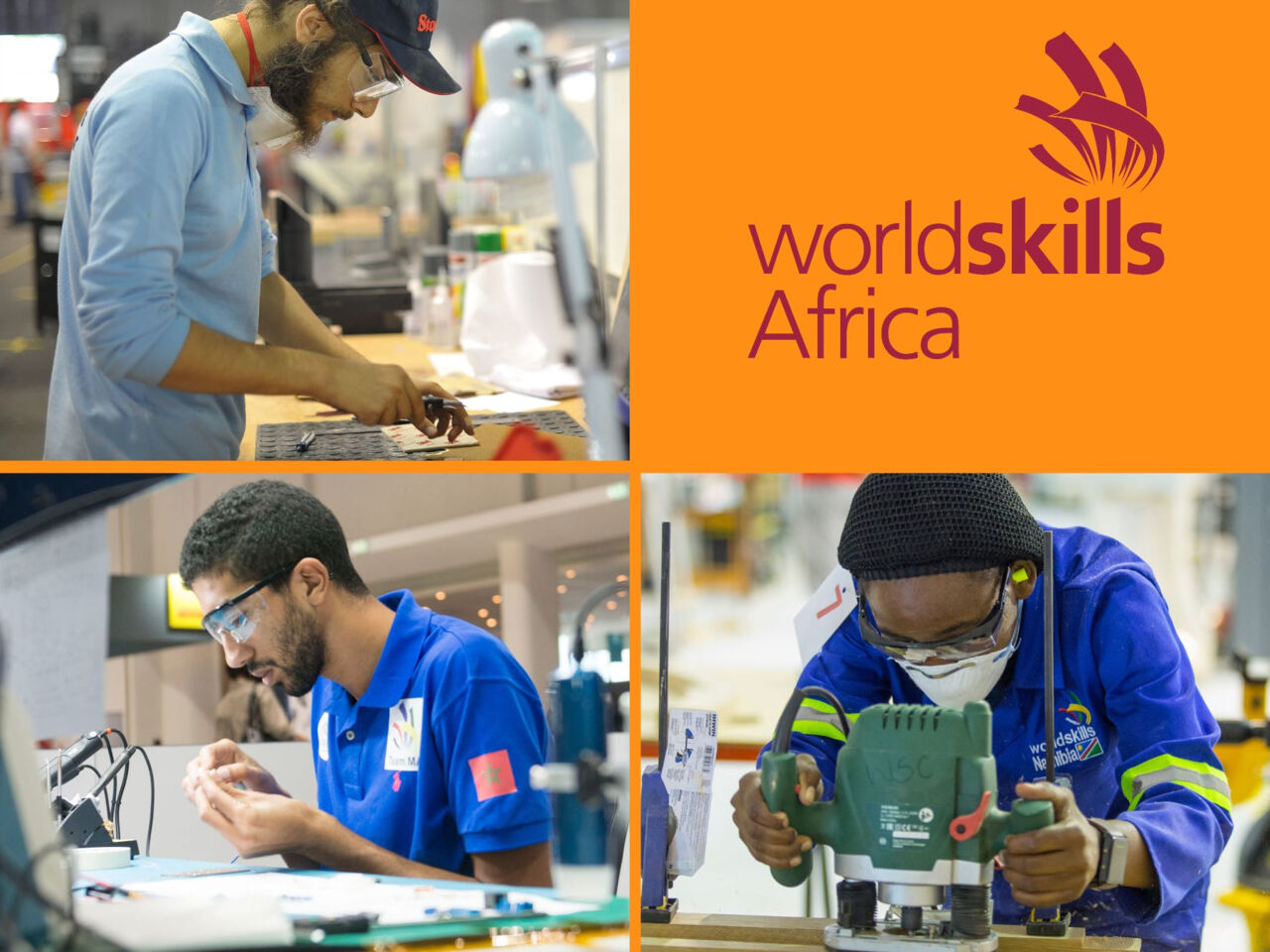2 February 2024
Countdown begins to the launch of WorldSkills Africa
WorldSkills Africa will officially launch later this month at the African Union’s Heads of States Summit in Addis Ababa, Ethiopia, with a mission to drive skills excellence.

After years of preparation and collaboration, it is now only a few short weeks until WorldSkills Africa will be officially launched. It will provide African nations with a dedicated platform to improve skills development, build capacity, and reimagine Technical and Vocational Education and Training (TVET) systems across the continent. It promises to be a significant moment for the WorldSkills community and will bring renewed momentum to the efforts of existing Member countries, that include Egypt, Ghana, Kenya, Morocco, Namibia, South Africa, Tunisia, Uganda, and Zambia.
There have been many important milestones in the run up to this launch, not least the very first regional skills competition which took place in Kigali, Rwanda in 2018, demonstrating the value of competition-based skills training. But the idea for WorldSkills Africa took shape in 2019, when WorldSkills International (WSI) and the African Union Commission (AUC), signed a memorandum of understanding (MoU) for its development. The commitment was strengthened by the renewal of the MoU to implement WorldSkills Africa through the African Union Development Agency (AUDA-NEPAD).
Since then, AUC, AUDA-NEPAD, and WSI have collaborated to deliver on this momentous intention. WorldSkills Africa Swakopmund 2022 was an important testing ground. The Competition itself received huge support, with 16 skill competitions and nine participating countries. Policymakers, private sector organizations, and partners saw for themselves the potential of a regional organization, and how it could strengthen the bond between vocational education, market demands, and creating opportunities for youth.
When it launches on 17 February 2024, WorldSkills Africa will focus on strengthening TVET systems through competition-based training, capacity-building, best practice sharing, benchmarking, and peer learning. It aims to influence change across government, education and industry, so that each aligns with the evolving skill landscapes. In doing so, it hopes to increase employability prospects for young people and help industries diversify and grow.
Chris Humphries, WorldSkills President, said, “The official launch of WorldSkills Africa is an exciting and much-anticipated moment for our skills community. I am so grateful to everyone who has been involved in preparing for this important day. Having a regional organization in place will enable us to help more young people thrive through skills and drive Africa’s economic progress. We now wait with excitement for the 17th of February.”
WorldSkills Africa’s priorities are underpinned by Agenda 2063: The Africa We Want. This guiding framework for Africa’s development includes a clear goal to educate citizens and embark on a skills revolution. With a population of 1.4 billion people, 65% of which are under the age of 25, Africa is the fastest growing and youngest population in the world. Yet it is also the continent with the greatest unemployment. WorldSkills Africa will be well-placed to help Africa’s youth develop their skills at the pace that governments and industries need.